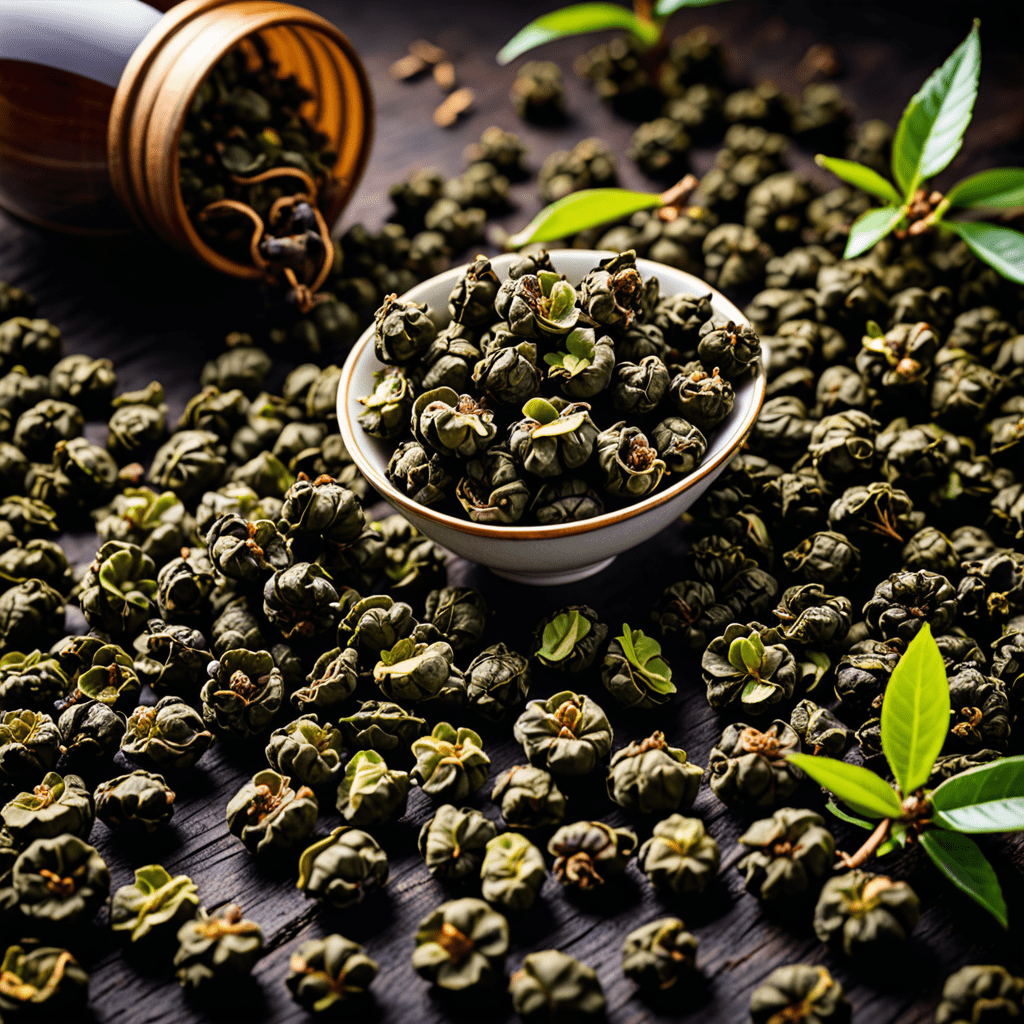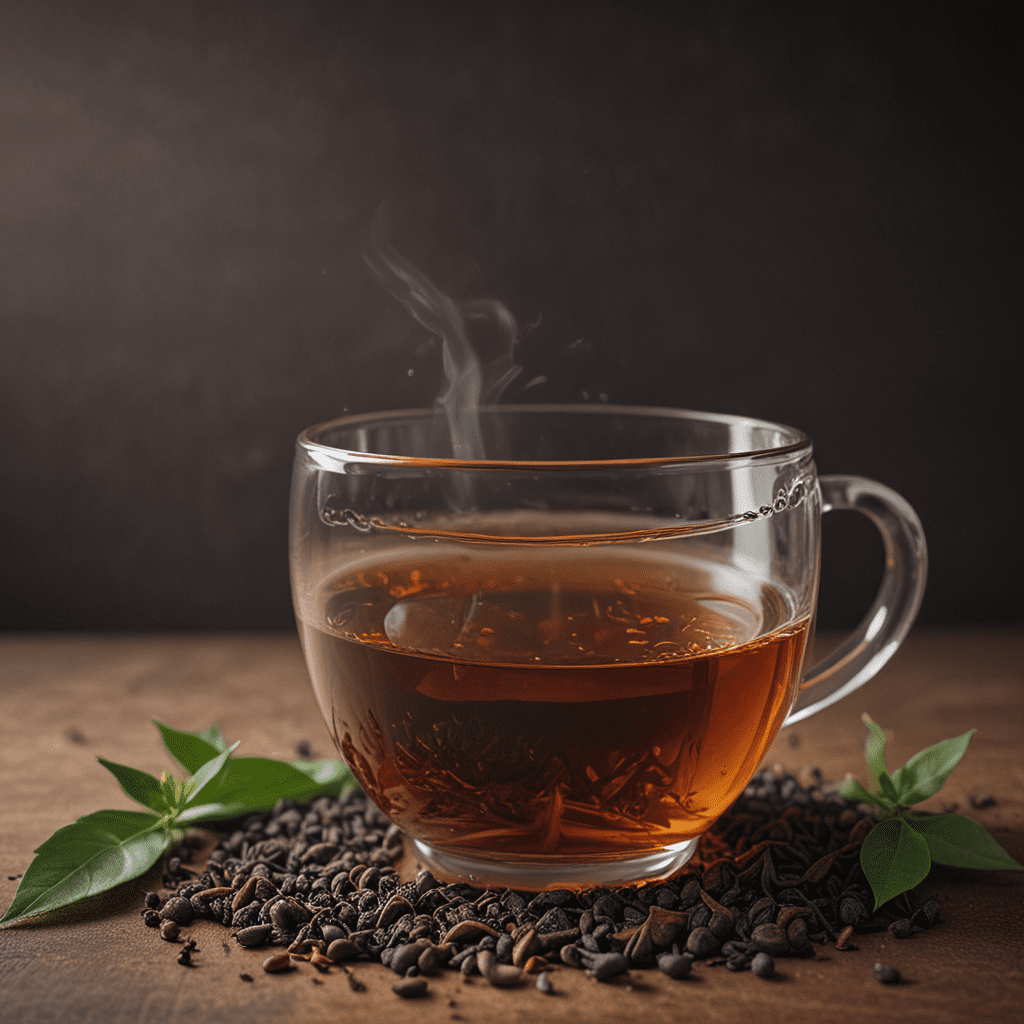Assam Tea: The Flavorful Symphony
I. Origins of Assam Tea
Nestled in the verdant valleys of northeastern India, Assam is home to the world-renowned Assam tea, a testament to the region's rich agricultural heritage. The origins of Assam tea can be traced back to the 19th century when British planters discovered wild tea plants thriving in the Brahmaputra Valley. These indigenous plants possessed exceptional characteristics, yielding teas with a unique and distinctive flavor unlike any other.
II. Cultivation and Harvesting
Assam tea plants thrive in the warm, humid climate and fertile soil of the Brahmaputra Valley. They are cultivated in sprawling tea estates, where meticulous care is taken to ensure optimal growing conditions. Assam tea bushes are typically shade-grown to protect the delicate leaves from the harsh sun, resulting in a tea with a fuller flavor and higher antioxidant content. The harvesting process is crucial, as the timing and technique can significantly impact the quality of the tea. Only the tender, young shoots are handpicked, ensuring the highest concentration of flavor and aroma.
III. Processing Techniques
After harvesting, Assam tea undergoes a series of processing techniques to transform the fresh leaves into the finished product. The traditional method involves withering, rolling, oxidation (fermentation), and drying. During withering, the leaves lose moisture and become pliable for rolling, which helps release the essential oils that contribute to Assam tea's characteristic flavor. Oxidation, a controlled fermentation process, allows the leaves to develop their deep reddish-brown color and malty notes. Finally, the leaves are dried to halt oxidation and preserve the tea's unique character.
IV. The Distinctive Flavor Profile
Assam tea is renowned for its robust, full-bodied flavor, often described as malty, earthy, and slightly spicy. The rich soil of the Brahmaputra Valley imparts a distinctive mineral quality to the tea, while the oxidation process contributes to its malty notes. Assam tea is known for its high caffeine content, providing an invigorating boost, and its astringency, which creates a refreshing mouthfeel.
V. Health Benefits of Assam Tea
Beyond its captivating flavor, Assam tea boasts an impressive array of health benefits. It is rich in antioxidants, specifically flavonoids, which help protect the body from cell damage caused by free radicals. Studies have suggested that Assam tea may support cardiovascular health, reduce inflammation, and improve cognitive function. Additionally, its caffeine content can enhance alertness and focus, making it a perfect beverage for both morning and afternoon enjoyment.
VI. Brewing Assam Tea
To fully appreciate the rich flavors of Assam tea, proper brewing is essential. For optimal results, use fresh, cold water and a teapot made of clay or porcelain, which helps retain heat and allows the tea leaves to fully expand. Bring the water to a rolling boil (205-212°F). Place 1 teaspoon of Assam tea leaves per 8 ounces of water into the teapot and pour the boiling water over the leaves. Allow the tea to steep for 3-5 minutes, depending on desired strength. Strain the tea into cups and enjoy its robust, malty character.
VII. Pairing Assam Tea with Food
Assam tea's bold flavor pairs exceptionally well with a variety of culinary delights. Its robust notes complement spicy dishes, such as curries, tandoori chicken, and samosas. The malty richness of Assam tea also harmonizes with sweet treats like scones, biscuits, and fruit cakes.
VIII. Cultural Significance in Assam
In Assam, tea holds a profound cultural significance. The state's lush tea gardens and vibrant tea industry are deeply intertwined with the local identity. Tea plantations provide employment and economic stability to many communities, and tea is an integral part of everyday life. Local festivals and celebrations often revolve around tea, showcasing its cultural importance.
IX. Economic Importance
Assam tea plays a vital role in the economy of the state. The tea industry is one of the largest employers in Assam, providing livelihoods for countless families. Assam tea is exported worldwide, generating significant foreign exchange revenue. The state government actively supports the tea industry through research, development, and promotional initiatives.
X. Innovation and Future Prospects
The Assam tea industry is constantly evolving, embracing innovation to enhance quality and productivity. Researchers are developing new tea cultivars resistant to pests and diseases, while modern processing techniques aim to preserve the tea's unique flavor profile. The future of Assam tea looks bright, with continued innovation and a growing global demand for its distinctive, flavorful qualities.
Frequently Asked Questions (FAQs)
Q: What is the best way to store Assam tea?
A: Store Assam tea in an airtight container in a cool, dry place away from direct sunlight. This will help preserve its flavor and aroma.
Q: How much caffeine is in Assam tea?
A: Assam tea is known for its high caffeine content, typically ranging from 40 to 60 milligrams per 8-ounce cup.
Q: Can Assam tea be consumed daily?
A: Yes, Assam tea can be consumed daily in moderation. However, individuals sensitive to caffeine should limit their intake.
Q: Is Assam tea good for weight loss?
A: While Assam tea has antioxidant properties, there is no scientific evidence to support its direct role in weight loss.

